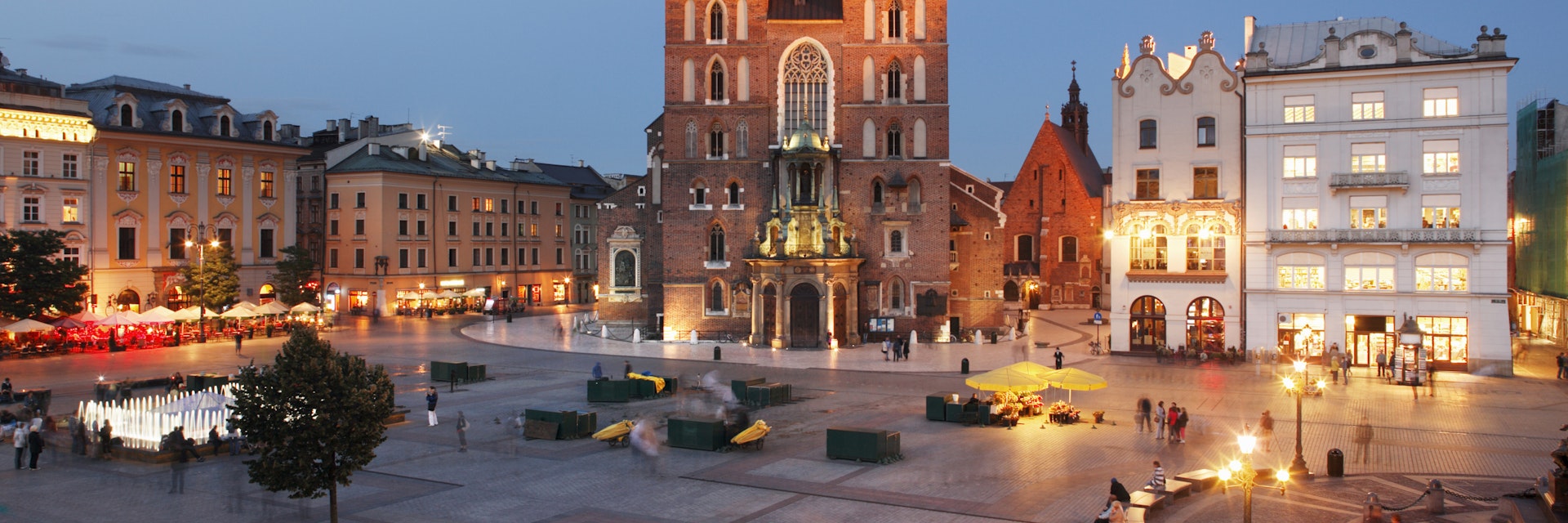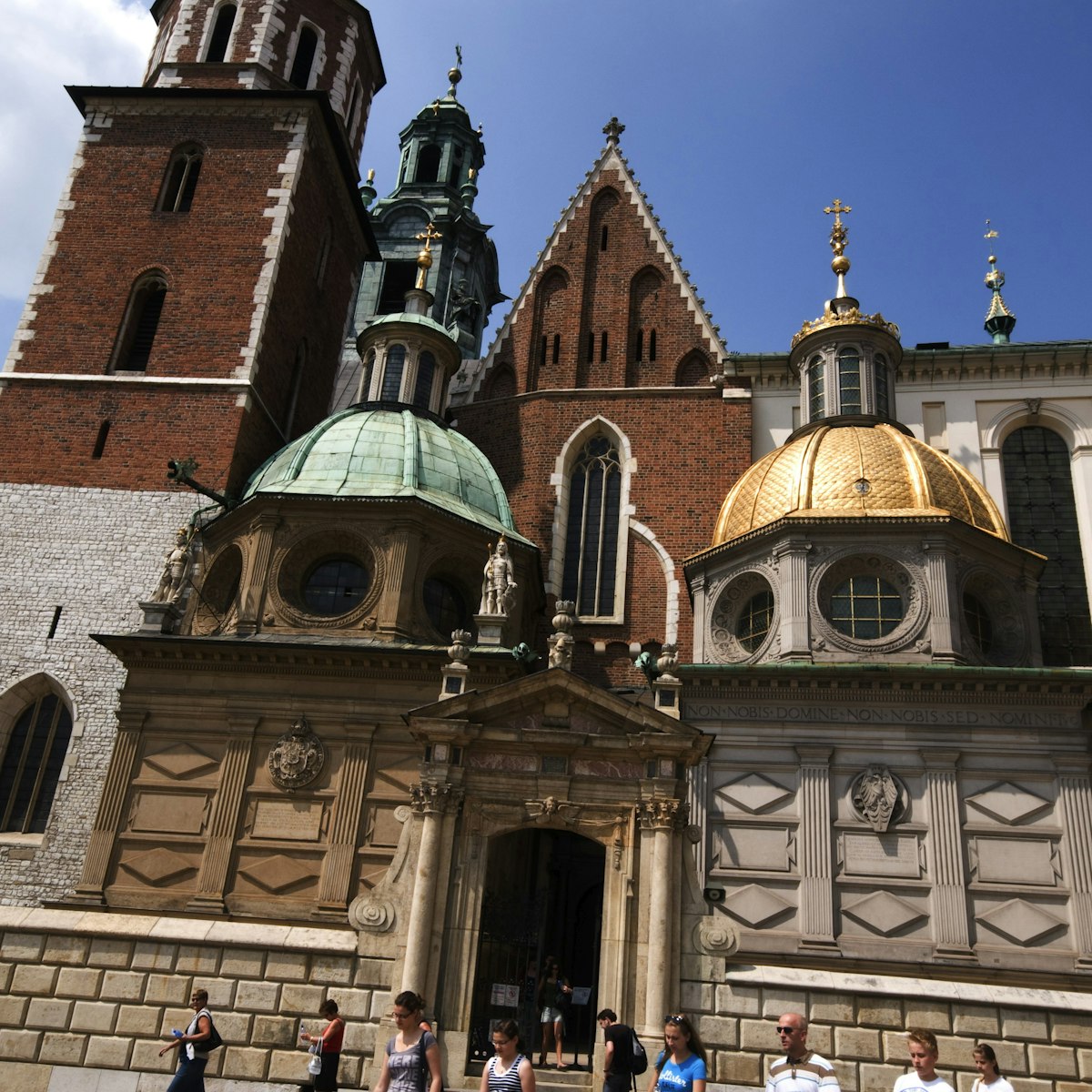This striking brick church, best known simply as St Mary’s, is dominated by two towers of different heights. The first church here was built in the 1220s and following its destruction during a Tatar raid, construction of the basilica began. Tour the exquisite interior, with its remarkable carved wooden altarpiece, and in summer climb the tower (adult/concession 15/10zł) for excellent views. Don't miss the hourly hejnał (bugle call) from the taller tower.
The main church entrance, through a baroque portal added to the southwestern facade in the 1750s, is used by worshippers; tourists must enter through the side door to the southeast.
The chancel is illuminated by magnificent stained-glass windows dating from the late 14th century; the blue star vaulting of the nave is breathtaking. On the opposite side of the church, above the organ loft, is a fine art nouveau stained-glass window by Stanisław Wyspiański and Józef Mehoffer. The colourful wall paintings, designed by Jan Matejko, harmonise beautifully with the medieval architecture and are an appropriate background for the high altar, which is acclaimed as the greatest masterpiece of Gothic art in Poland and allegedly designated the eighth wonder of the world by Pablo Picasso.
The altarpiece is a pentaptych (an altarpiece consisting of a central panel and two pairs of side wings), intricately carved in lime wood, then painted and gilded. The main scene, visible when the pentaptych is open, represents the Dormition (or Assumption) of the Virgin surrounded by the Apostles. The outside has a dozen sections portraying scenes from the life of Christ and the Virgin. The altarpiece is topped with the Coronation of the Virgin in Heaven and, on both sides, the statues of the patron saints of Poland, St Stanislaus and St Adalbert.
Measuring about 13m high and 11m wide, the pentaptych is the country's largest and most important piece of medieval art. It took a decade for its maker, Veit Stoss (known in Poland as Wit Stwosz), to complete this monumental work before it was consecrated in 1489.
The pentaptych is opened daily at precisely 11.50am and closed at 5.30pm, except for Saturday when it’s left open for the Sunday-morning mass. The altarpiece apart, don’t miss the delicate crucifix on the baroque altar in the head of the right-hand aisle, another work by Veit Stoss, and the still larger crucifix placed on the rood screen, attributed to pupils of the master.








